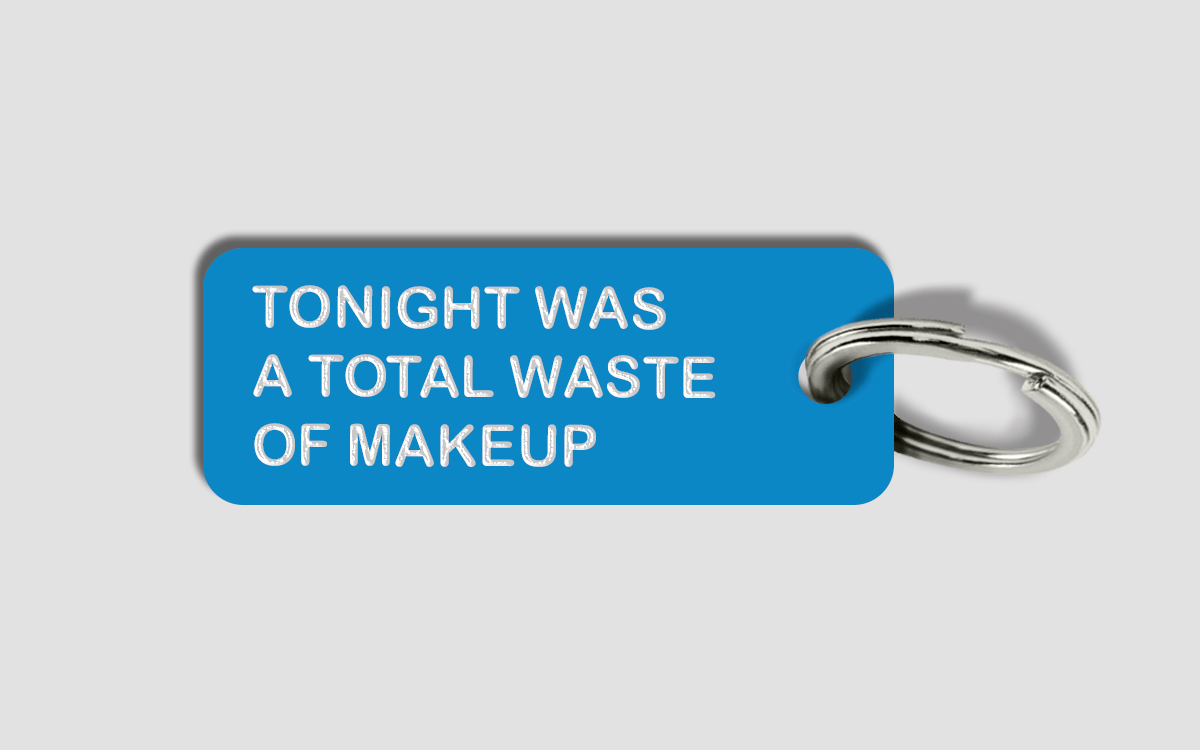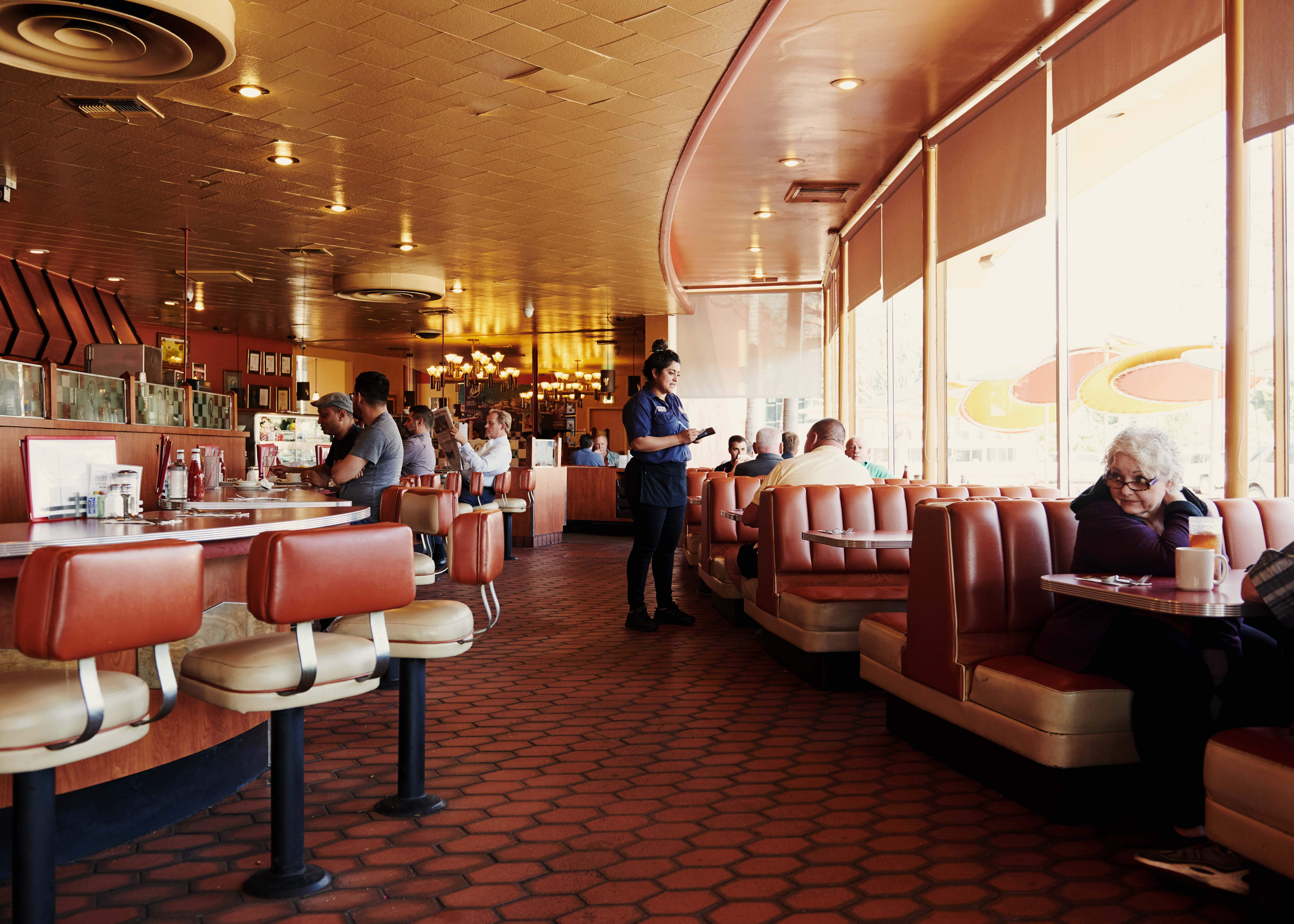April / Global
The Opener
A conversation with Chris Black, co-host of the How Long Gone podcast, ecological risk in the South Atlantic, plus updates from our correspondents around the world.
HOW TO LIVE: UNIFORMS
Smart chance
Tyler Brûlé on why dressing the part is about more than just self-expression.
It was 2008. To mark the recent launch of monocle, we had decided to host a dinner for our advertisers and bought crisp, white waiter jackets from Hakuï in Japan for the occasion. All was going to plan on the night until I overheard one of the serving staff tell her manager that she wasn’t happy with the jacket that she had been given.
“What’s wrong with it?” asked the manager. “It looks good on you.”
“It inhibits my creativity,” said the woman. “I need to express myself.”
What a curious comment, I thought. Had she been booked for the wrong event? Did she assume that there would be a dance component to the evening? Maybe some acrobatics? The exchange continued for another minute or so before the gent in charge told her that there was an alternative outfit for her: the coat that she had arrived in, which she should collect on her way out.
I didn’t recognise it at the time but that exchange was a taster of what many companies now have to contend with: staff putting their own freedom of expression before what’s best for the company. Firms must stand up for what is right for the brand, the customer and corporate culture.
In this fashion-and-hospitality-themed edition of monocle, we highlight a few hotel brands that understand the power of giving their staff uniforms that make the wearer proud, while also allowing guests to identify who is staffing the lobby or bar. The vogue for putting everyone in polar fleece cannot be the solution for banks, airlines and courier companies. If you don’t like the uniform of a potential employer, you might want to reconsider applying. —
Reporting from...
Monocle has a network of correspondents in cities around the world. This month, our brief updates feature greased wheels in London, a buzz above the streets of Tokyo and a wet’n’wild festival in Bangkok.
TOKYO
Honey trap
Ginza might be famed for its high-end shops and restaurants but less well known is that the area is home to five volunteer-run rooftop beehives. The Ginza Mitsubachi Project started in 2006; today 250,000 bees make two tonnes of honey every year. Tours are available, as is the sweet stuff.
BANGKOK
Making a splash
Heading to Bangkok in April? Be prepared to get wet. Annual water festival Songkran is set to unfold over the entire month as part of the government’s push to promote Thai soft power. The festival’s global ambitions mean that it might one day rain on even the Easter bunny’s parade.
LONDON
Pedal power
Is London in a golden era of cycling? Ridership is up 20 per cent on pre-pandemic levels, while cycling trips make up the equivalent of a third of all Tube journeys. Transport for London says that more than eight million motor-vehicle journeys a day could be biked instead.
The Interrogator
Chris Black
Co-host, ‘How Long Gone’

Chris Black is the New York - and Los Angeles -based co-host of podcast How Long Gone, as well as a cultural commentator and fashion consultant for brands such as J Crew. Alongside his co-host, Jason Stewart, Black offers a refreshingly honest take on the fashion, entertainment and hospitality industries, and regularly interviews high-profile musicians, restaurateurs and journalists. Here, we ask him about his media habits and what it takes to be a skilled conversationalist.
Where do you get your news?
Newspapers such as The New York Times and the Financial Times. I’m a big Puck person. I go to Mediastar for media news, Hits Daily Double for music and Vogue Business for fashion. I like to be in the know about all of these industries. Being informed helps my career and show. I never feel exhausted by keeping up with the news. Music, fashion and media are businesses that are constantly in flux.
What’s on your sofa-side magazine stack?
I have so much stuff. Apartamento, The Gentlewoman, Fantastic Man, Middle Plane, Staf, The New Yorker, The Paris Review, System, Epoch, L’Étiquette, Popeye, Slop. And then I have a lot of old issues of Index, The Face, Dazed & Confused and GQ. I have the first issue of monocle.
‘How Long Gone’ doesn’t pull its punches when it comes to making fun of the industries it covers. Why do you think this approach has worked for you?
It’s fun and it comes from a place of respect. When you record three hours of yourself talking every week, you care less about what you’re saying and it’s easier to be honest. You’re not thinking about repercussions. Most people who listen to the show know that there’s a tongue-in-cheek element to it.
Do you think the cultural conversation is ready for a little more cheekiness?
People revel in doom and gloom. They make that an identifying feature. Yes, there are ills in the world. And maybe it’s worse now than it used to be. But you can’t let every little thing affect you. And humour or honesty still shine through.
What are your tips for being a good conversationalist?
Be curious. We are so used to talking about ourselves. Our culture rewards it. When it comes to conversation, the only way to make it interesting is to ask genuine questions. On our show, we have an hour with someone and we want to make it fun for all of us. And everybody likes talking about themselves.
Key messages
While it’s true that we’re bookshop and newsstand aficionados here at monocle, even we are prepared to admit that some shopping experiences can be a tad mirthless. Luckily, Lisbon retailers Luis Cunha and Arturas Slidziauskas might have found a solution: humour. Our editors recently visited the pair’s shop, Under the Cover, in Bairro Azul. There, we discovered the art of canny copywriting flourishing in an unlikely place: on keychains, emblazoned with arch, oddball slogans. Was it Kant or a keyring that first said, “My cat is right about you”? You get the idea. Sure, it’s not quite Pessoa but it certainly sends a message: words matter and the best ones ring true. And it’s also a reminder that a little humour here and there can be as key to reading as it is to retail.



Three things you'll learn
MONOCLE'S correspondents have brought back insights into design, world leaders, education and more. Here are just three things you’ll learn in this issue. —
1
Kyriakos Mitsotakis
doesn’t mince his words
The Greek prime minister isn’t amused by a recent report about press freedom in his country. “May I be a little blunt?” he asks monocle contributing editor Andrew Mueller, who he spoke to at the Munich Security Conference. “This report is a joke.” The EU’s report – not ours, we hope. Read our q&a for more on Greek equality, defence and how to handle the neighbours here.
2
Not everyone needs (or wants) a university degree
Education rates are rising but university courses can lead to debt and not always to jobs. That might be why a growing number of US students are choosing to take a hands-on approach. We visit North Bennet Street School in Boston to see what the next generation is making of the opportunity to learn a trade. To learn more, click here.
3
Paris is home to tens of thousands of state-owned design treasures
French diplomats have a secret weapon when it comes to showing off Gallic design: Mobilier National. Since the 17th century, this Paris-based workshop has decked out embassies, repaired priceless antiquities, dressed rooms and provided fittingly grand backdrops for statecraft. Pay a visit here.
Tipping point

US tipping culture is on the march and could soon be coming to an after-dinner bill, factura or Rechnung near you (writes Christopher Lord). I have always preferred not to complain about what is an unavoidable fact of dining out stateside, even if it confounds most visiting Europeans. Yet I have started to see its influence spreading: a percentage point added to the bill in London restaurants, for example, and a growing pressure to fork out. Most Americans recognise that tipping is out of control. Gratuity has become gratuitous.
Point-of-sale (pos) machines – those devices at the till on which you tap your card, digitally sign your name and select a tip percentage – have become ubiquitous. Adding 20 per cent was once a solid recognition of good service in the US but some pos machines now urge you to add more than 35 per cent to your bill – all before you get your coffee. How do you know that the service will be any good?
For daily opinions, analysis and insights, subscribe to The Monocle Minute, our free email newsletter, at monocle.com/minute
Wild blue yonder
It has been almost 42 years since Argentina lost its war with the UK over the Falklands. It has been 11 years since the people of the Falkland Islands voted – 1,513 to three – to remain an overseas territory of the UK. Argentina has never taken the hint. Perhaps the only Argentinian political orthodoxy observed by its eccentric new president, Javier Milei, is the belief that the Falkland Islands are in fact Islas Malvinas and should be returned.
The dispute has nevertheless long been at a fairly low simmer: even the combustible Milei has ruled out another war. However, the standoff is bad news for the South Atlantic’s sea creatures. Wedged between the UK’s exclusive economic zone (eez) surrounding the Falkland Islands, and Argentina’s eez, which borders Argentina, is a rich but lawless realm that has become known as the Blue Hole.

Many trawlers turn off their tracking systems, further liberating them from oversight
The area has been overrun by trawlers (many of them Chinese), drawn by the area’s extraordinary diversity of marine life, as well as by the fact that there’s nothing to stop them from harvesting as much of it as they can carry. Reports suggest that many of the trawlers turn off their tracking systems, further liberating them from oversight.
A possible solution would be the establishment of a Regional Fisheries Management Organisation (rfmo) but that would involve Argentina co-operating with the UK – therefore implicitly acknowledging that the UK gets a say in the matter. It is quite the diplomatic conundrum but reaching a compromise would be (marginally) easier than persuading the local squid to avoid the area.


